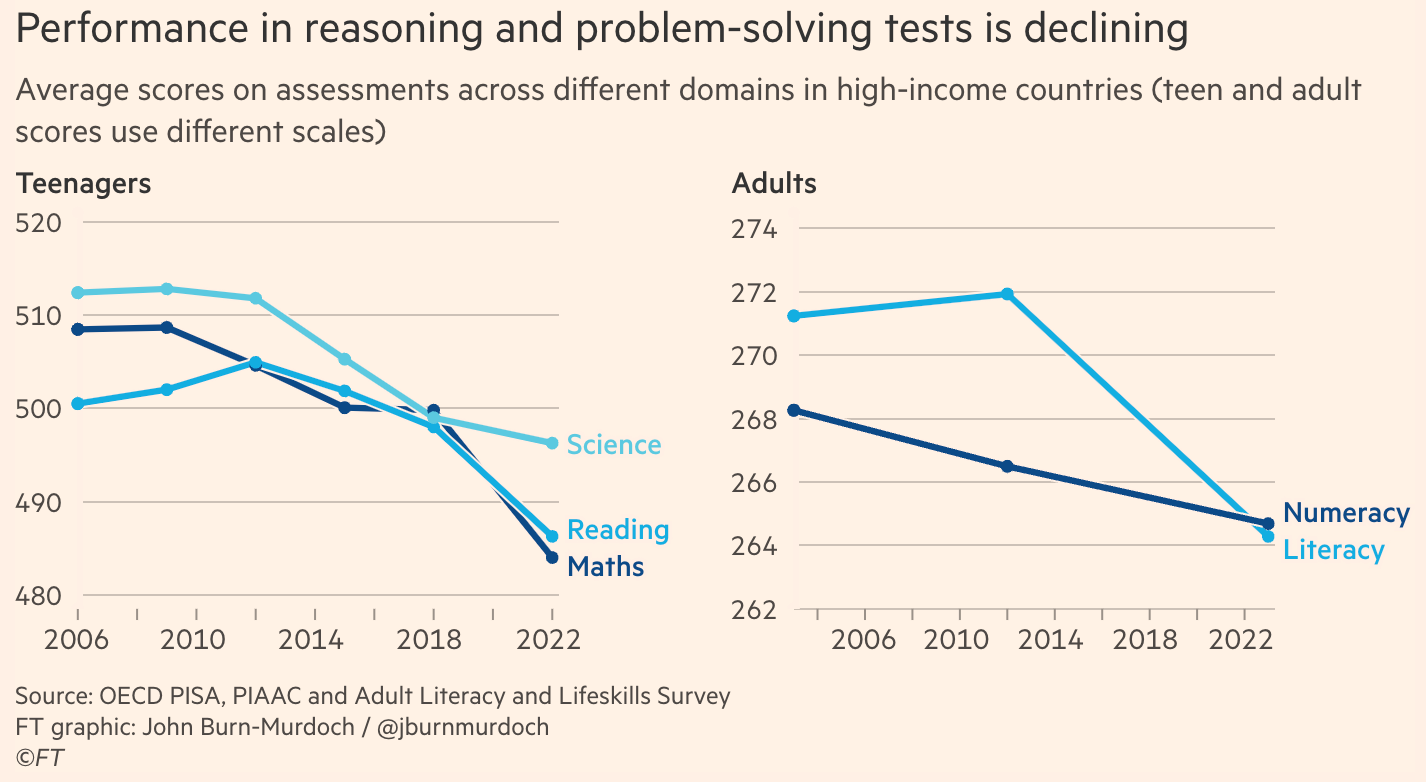Austin Scholar #161: Screens aren’t just the problem; they’re the solution
& the skills I used to crush sorority recruitment
Hey, y'all!
This week from Austin Scholar...
Austin’s Anecdote: The skills I used to crush sorority recruitment
Screens aren’t just the problem; they’re the solution
Scholar’s Sources: What I’ve been thinking about…
I’m happy to announce that I am officially a Pi Phi! Last weekend’s sorority recruitment was a crazy, exciting, exhausting experience. I’m an introvert, so three straight days of nonstop talking to tons of different girls does not sound like my idea of a perfect weekend. However, I truly had so much fun getting to both meet new girls and see girls that I hadn’t seen since orientation week. But why did I want to Rush in the first place? you might be wondering.
The best part of my Stanford experience so far has been connecting with all of the girls on my dorm floor. It’s such a beautiful community and I would love to build another one for the rest of my time at Stanford – and a sorority seems like the perfect place to do that. I’ll be keeping y’all updated on how that goes, but I’m super excited to be a Pi Phi angel so far!
Austin’s Anecdote: The skills I used to crush sorority recruitment
How to talk to people
I might be a naturally shy person and frequently not know what to say in new social situations, but I showed up last weekend. I found every single way I could connect with the girl I was talking to (where we’re from, if we both have a sister, what classes we’re taking, etc.) and explained how my interests (education, fostering sisterhood, etc.) could help the sororities on their missions.
Here are two newsletters where I outline how to have great conversations and make friends (all of these concepts are applicable to any non-sorority recruitment scenario as well):
Austin Scholar #23: Making Friends 101: The Survivor Social Game
Austin Scholar #91: How to have great conversations over the holidays
Pitching
Pitching yourself is critical to sorority recruitment. Despite not being a product, you have to explain and prove to sororities why they want you. During the longer conversations I had with the girls, I used mostly steps three and five of Elon Musk’s pitching structure: painting the promised land and winning them over with evidence. Essentially, I explained how I would contribute to the ideal sorority experience and what I’ve already done to prove I can.
Here’s my favorite newsletter on pitching:
Austin Scholar #88: My 5 top rules for public speaking, plus Elon Musk’s pitching structure
Grit
Although Rush isn’t the typical “gritty” experience you might think of, grit is definitely an essential skill to get through this process (particularly for introverts like me). After the first day of talking and screaming for six hours straight, I completely lost my voice – a true nightmare for any girl rushing. But despite the true pain and scratchiness that came from using my voice, I did have to push through for the next two days. And I was honestly just tired – every day was super exhausting. But you have to pretend that you’re the most energized and happy you’ve ever been in your life. You’ve just gotta have grit and push through.
Here are two newsletters I’ve written about grit:
Austin Scholar #104: Why (and how) you should teach your kids grit
Austin Scholar #62: What AP prep and Taylor Swift can teach your kid about grit
Screens aren’t just the problem; they’re the solution
The pandemic was not the start of our country’s educational problems.
In reality, our education system has been failing students for a while now, and standardized test scores have been dropping for twenty years. And it doesn’t only affect students.
The data paints an alarming picture of adult learning capabilities and ability to understand the world around them. At the national average skill levels in numeracy, literacy, and adaptive problem solving, adults struggle with fundamental skills that should be the bedrock of critical thinking:
To begin with numeracy, most adults cannot:
Perform complex calculations with whole numbers, decimals, and percentages
Determine missing values in data sets
Apply proportional reasoning
Critically evaluate mathematical conclusions
Onto literacy, most adults cannot:
Understand and interpret larger chunks of text.
Perform multi-step operations to find and create answers.
Identify, interpret, or evaluate multiple pieces of information.
Use reasoning and inference at different levels.
And finally, most adults experience:
Difficulty generating mental models for complex problems
Challenges in distinguishing relevant from irrelevant information
Struggles with comprehensive problem-solving strategies
Basically, the education system has failed to teach students how to think critically, form their own opinions, and evaluate or even understand facts.
I can across a study earlier this week from a post by Jonathan Haidt (who wrote The Anxious Generation, a book that outlines how phone usage is contributing to teen mental illness), so the comments under the post predictably all blamed phones for the decline in students’ test scores and abilities to learn new things.
But while I do believe devices have had an impact on these characteristics, they are not the only reason for the decline in educational standards and abilities throughout this country, and just taking away a child’s cell phone will not fix the problem. We need to fix the system.
If you’ve been around for a while, you already know what I’m going to say.




